Of all the photo challenges I’ve seen grace the Toy Photographers blog, none have given me as much trouble as the one for March: Fear. Here’s the challenge prompt given by AliceinCleveland over at our Google+ community:
For this month’s challenge, I’m asking if you will photograph your fears about your own toy photography with me. That’s it. Think about your fears about your art, and photograph them…
I mistakingly thought that this challenge would be easy; that I knew myself enough to instinctively understand what I feared most. But once I began to think specifically about my creative and photographic fears, I had a much harder time coming up with an answer.
To tackle the problem, I broke it down. First, I examined what I was afraid of, both on a surface level, and on a more personal and existential level. The surface level fears were the easiest. I’m afraid of taking bad photos, of no one liking them, and I’m afraid of not making enough of a mark with my art.
Those all feel like pretty natural fears to me, and are things I saw a lot of in the discussions on G+ this month. I think all artists grapple with self-doubt and fears of inadequacy.
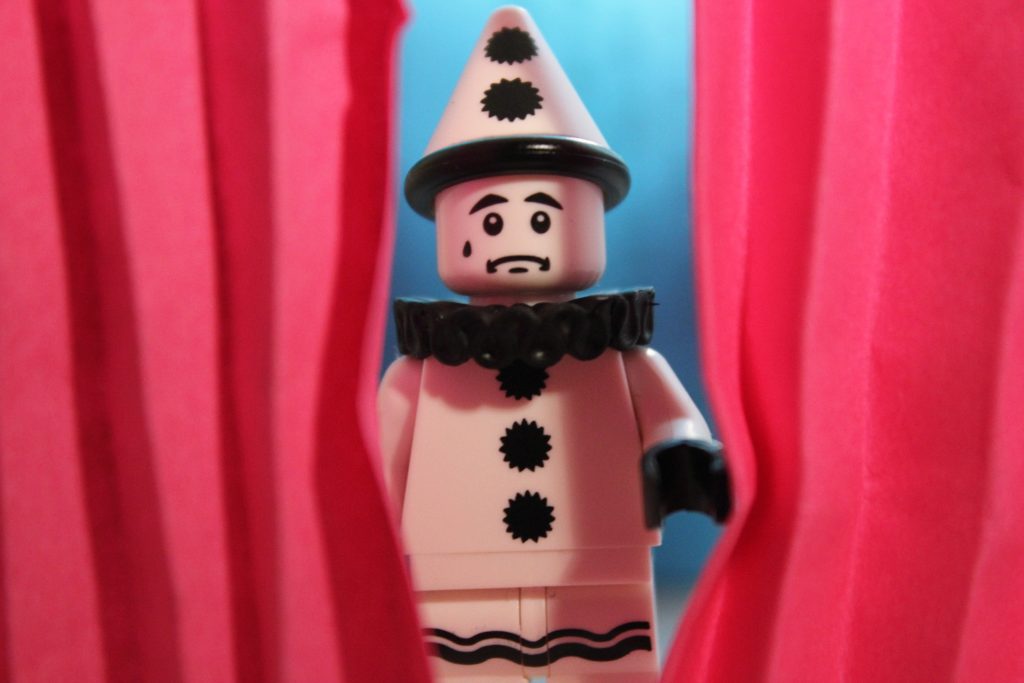
Stage Fright
“Are you paralyzed with fear? That’s a good sign. Fear is good. Like self-doubt, fear is an indicator. Fear tells us what we have to do. Remember our rule of thumb: The more scared we are of a work or calling, the more sure we can be that we have to do it.”
-Steven Pressfield
Once I got those fears out of the way, and realized that my peers struggled with them too, I decided to look inwardly and find out what really scared me personally about my art. There were a few, but my wife (who is my constant muse and sounding board) told me the thing she’d noticed most whenever I’d talk about my self-doubt:
I’m afraid of my lack of technical knowledge
Looking at it now, in big bold letters on this blog post, it feels like a silly fear. But it’s very real, and is actually something I struggle with every single time I take a photo.
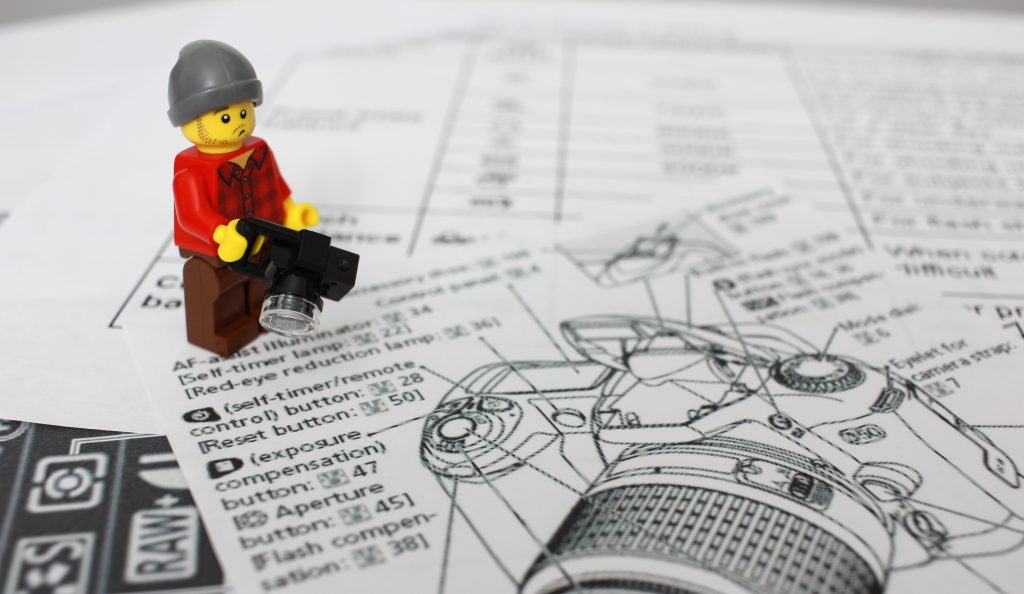
Technical Jargon
I always hesitate to call myself a photographer, because of how little I actually know about the technical side of things. I only ever took one photography class for one semester in high school, a little over a decade ago. Apart from some basic knowledge of how to turn a camera on and mess with the settings until I get the photo I’m hoping for, my photography jargon is extremely limited. When someone speaks about f-stops or the focal length of a particular lens, they might as well be speaking in a foreign language!
The more I thought about it, the more I realized this was the base fear for all the others on my list. Because of my limited technical knowledge, I worry that I won’t take good photographs. That people won’t like them. That I’ll be branded a “fraud” or not a “real” photographer. Luckily for me, this is a fear that can be overcome, and one that can even be conquered in time (and with a lot of practice behind the camera).
Since beginning this challenge this month, I’ve been reminded of this quote every time I turn my camera on:
Do one thing every day that scares you.
-Eleanor Roosevelt
I love that. It helps remind me that overcoming fears is a process. It’s not something that can be accomplished overnight.
I may not know everything about photography, but I know more than I used to! And as I continue, I’ll keep learning and growing. I’m proud of the knowledge I’ve gained in the three years since I became a toy photographer. The joy of getting a good photo far outweighs any doubts I have in myself or my technical prowess.
So, whatever your fears are, either as an artist or simply as a human being, I hope that you can find ways to encourage yourself to conquer them.
What are your biggest fears as an artist? Are you doing anything to overcome them? Sound off in the comments, and don’t forget to join the Toy Photographers community on Google+!
Don’t forget to subscribe to the blog to get notified when we have a new post ready for you.



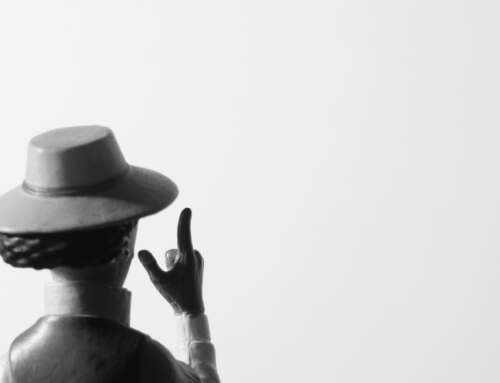
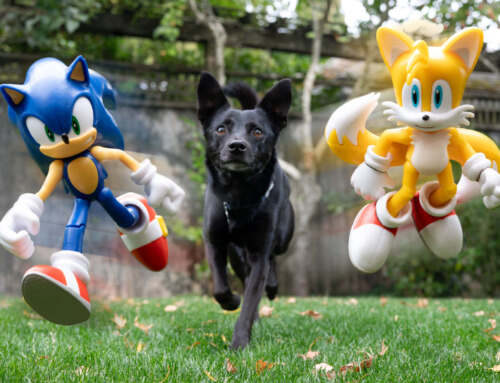
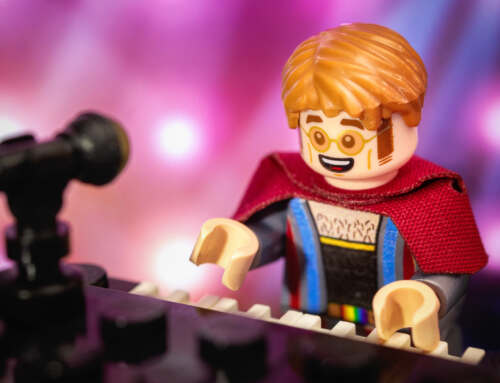
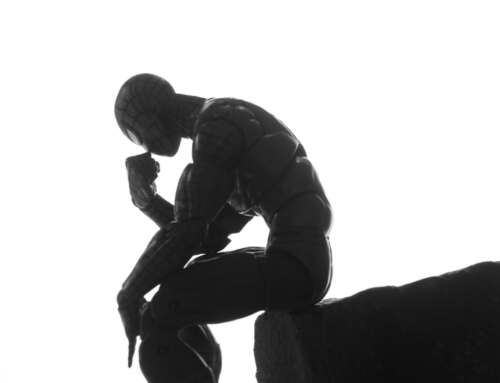
Thank you for writing this. I absolutely love that quote by Steven Pressfield. Those words are things I’ve thought but not been able to fully explain. Fears are important. My fears, I expressed on G+ are some of the more generic ones you began this post yet. So real and yet more common than we all realize. The discussion on G+ has helped me realize this as well. However, your fears about technical knowledge I can feel too. I majored in photography, but feel I didn’t retain enough. I fear that I haven’t continued to explore and learn, that I’m an impostor of photographic knowledge. And while I can’t be sure, I have a sneaking suspicion that many of us feel this, we just didn’t manage to think as far into this challenge as you were able. Your pictures are beautiful. So no matter your level of technical knowledge, you do know what you’re doing, I’m sure of it.
Thank you, Jennifer. That means a lot! And it helps to hear that you struggle with some of the same fears. That’s definitely one thing I learned while reading everyone’s stories this past month. We’re all in this together and share a lot of the same doubts!
Thank you for sharing your insights! I think making mistakes is the best way to learn. I used to be the same way about the technical side of photography. Through toy photography I have learned way more than I ever thought I would about photography. I feel toy photography has opened my eyes to a willingness to learn the technical side that I didn’t really care too much about before. Now that I feel comfortable with the technical aspects of photography I feel it has opened many doors of opportunity. One thing that helped me to learn was shooting with manual focus lenses. I was forced to learn what all the technical stuff was on the lens and the camera menu. Now when I use a AF lens I feel it’s too easy, and I don’t have the same connection with the shot as if I use manual.
Thanks again for sharing – and I love that “Stage Fright” shot. The colors are perfect!
Thanks, Joe! I agree, making mistakes is the best way to learn. Trial and error has gotten me pretty far in life! I too have learned a lot by not only using manual focus lenses, but setting my camera to Manual instead of one of the other settings. I may not know what all the jargon means, but I at least know which buttons to push or which dials to turn to get to what I want!
Wonderful post James! I sometimes feel the same way when people start talking in depth about the technical aspects of photography. I only recently started shooing in RAW and I felt self conscious about it because it seemed like everyone else had been shooting in RAW for years 🙂 Your photos are always beautiful so maybe you have more technical knowledge than you realize? 🙂
Thanks, Lynn! I only recently started shooting in RAW myself – I don’t know why it took so long, I just felt super intimidated – like I wasn’t “worthy” of shooting in such a format.
It’s reassuring to hear I’m not alone in these fears, and I’m glad you and others found something to relate to in my post!
James,
I truly love your post. I think it is a great way to end an amazing month of sharing our deepest photographic fears. I too have felt that I am an imposter when it comes to the technical side of photography. Even after calling myself an art photographer for 30 years I still feel like I don’t know anything. I spent the last year brushing up on my technical skills. And while I learned a lot, I also realized I knew more than I was giving my self credit for. Your photos tell me that you also know more than you’re giving yourself credit for. Again great post and thank you so much for sharing your fears with us! xo
Thank you, Shelly! I agree, it was an amazing month, and I’m honored that my post was able to close it all out. I’ve definitely learned a few tricks from your Basics columns, so thank you for that! Part of what I love about being involved in this community is how much we can all learn from each other.
James: if this is really the case, I would say you’ve really epitomised ‘fake it until you make it’ because I have never had an inkling of this in viewing your photography (please take this comment as a backhanded compliment).
However, I agree with Shelly and think your fear is stronger than the reality. I believe toy photography is a combination of art and technical skill, with art playing the most important part. Your mix of art and technical skill in your images works, and although it’s always good to know your gear I don’t think we need to get too deeply into the intricacies if it’s of no interest to us (or for any other reason). By way of example: the aperture value is a fractional value of the opening size of the iris diaphragm, in regards to the focal length of the lens; but who cares? If you know the bigger the ‘f’ number thingy puts more stuff in focus, and the smaller the number does the opposite, then that’s all you need to know.
I have always found that the biggest trick is to know your gear by reading the instruction manual and playing with the it. I also find that taking a series of experimental shots at different apertures and see how they turn out is a good way to get an idea of what’s going on. If things get blurry, put your gear on a tripod, or rest it against something. I reckon trial and error and plain old common sense beats technical understanding every time. Looking at your photography I think you have got that covered.
Wow, thank you so much, Tony! I love your bit about the ‘f number thingy,’ and the way you put it was actually SUPER helpful! I guess I never quite looked at it that way. I think I’ll try over-simplifying some of the other things I don’t quite understand, and use that as a jumping off point.
Trial and error have definitely helped me come a long way, and while I didn’t use a tripod to start, I find that I use one most of the time now! So that piece of advice is spot on.
An excellent article James. I agree with the others, you are way better than you give yourself credit for. You obviously have a feel for your subject and enough basic knowledge to carry out your vision. Just play around with all the dials and settings and you’ll soon work out what they do. That’s how I learnt once I had the basic knowledge. My biggest fear isn’t so much the technical side as I have been a photographer for many years and know my equipment pretty well. Although, having said that, I have a lot to learn about lighting, especially using flash and mood lighting. I usually leave that to nature in my other work. No, my biggest fear is being laughed at in public by people who don’t understand. Because of that I do tend to do a lot of indoor shots and only do outdoor shots when there is no-one else around. I have no problem with doing macro shots or landscape shots etc in full view of strangers, but when it’s time to bring out the toys, then I become furtive and secretive. I have had a few comments by strangers and I hate trying to explain what a slightly overweight Grandma is doing playing with toys. Plus dealing with the embarrassment of struggling to get up after I’ve been down on my knees for ten minutes or so!! Does anyone else have that fear/problem and does anyone have any suggestions on how to overcome it? Apart from just getting out there and doing it, which I know is probably the best way.
Oh my god, YES! I’m scared too of people in public making fun of me, and tend to avoid shooting in public places for that very reason. I always feel super self-conscious when shooting outdoors, which is partly why I think I use my studio most of the time. I HAVE been trying to do outdoor photography more, but when I do I usually pick remote areas or go out when I think no one will be around to hassle me. I’m a nervous, shy person though, so I think that’s part of it.
I too have a bit of trouble with actually getting on the ground and shooting – I have bad knees and they always start to hurt once I squat down to take a photo in a strange position. One thing I’ve found that helps with that is just experimenting with different positions to make it more comfortable. I also went to the gardening section of my local superstore and bought a foam knee pad to carry with me on my outdoor excursions. That’s helped out a bit and means I can stay on the ground longer than I normally would. Of course, that makes me a bit MORE self-conscious, but it’s worth it.
As you suggested, I think the best method is to just “get out there and do it,” though I know very well that that can be hard. Perhaps do as I do, and try to avoid crowded areas and shoot at times when people likely won’t be around. It can be a bit of a pain to plan that way, but at least you’ll have some peace and quiet!
Thanks for sharing your story 🙂
Fear? I always fear that I am not good enough, fear that people look down at my photos, fear that I don’t know enough about my camera to take good pictures. Question is if I trust myself even. Feels like I’m wing it til I have “that” photo. Yup, have a lot fears.
Stefan, I hope you will stop by the G+ community and read what everyone else wrote on their submissions for the ‘fear’ contest. It might help you understand that you are not along in your fears. We have all been their at one point or another. Some have moved beyond their fears while others still grapple with them, but no one lives without fear. When you are a creative and you put yourself out there, it is hard to be strong. But please know that we are there with you, if not physically, then in spirit. Tony posted a wonderful post on fear and he wrote back to one of the many commenters something that really struck me: “as you know I am pretty casual about toy photography and enjoy the freedom it affords me from day-to-day life. But it concerns me when our members get negative about their efforts.”
I think he is right, we are too hard on ourselves. Photography should be fun, it should be a creative release from our day to day lives. It is not something we use to beat ourselves up with, there is enough of that going around all ready. I enjoy your photos. I find them to be a beautiful look on the world. I look forward to your photos – from flowers to toys – it is all wonderful.
We all have fears, you’re not alone. Although I hope your fears will not keep you from picking up your camera and having fun! 🙂
First I must say that I have not been so active the last couple of weeks, too much both with social media and IRL. But I am doing a “read up” now.
And big Thank you for your kind words! And yes, I can be really hard on myself but love to lift up others, strange perhaps but that’s me.
Photos? Don’t worry, have a lot to post.
Hugs 🙂
Thanks for sharing, Stefan! I know all too well how life can get hectic and then you have to catch up on social media. I’m responding to all of the comments on this post in one fell swoop because of that! So I appreciate that you took the time to comment. Thank you!
As Shelly said, you’re not alone in your fears. I learned that a lot this month, and it gave me confidence to know that I wasn’t alone. We’re all in this together, and my favorite thing about the Toy Photographers community is how welcoming and supportive everyone is. It’s rare to find that on the internet these days.
I too really enjoy your photos, so don’t fear! You’re doing a great job, and your “wing it til I get that right photo” approach seems to be working just fine! 🙂
Thanks for sharing this James! While I think it’s useful to know some of the technical jargon of photography, I kind of approach it more like how Tony explains, “If you know the bigger the ‘f’ number thingy puts more stuff in focus, and the smaller the number does the opposite, then that’s all you need to know.” Along those same lines, a bigger (faster) shutter speed number means less light reaching your sensor, and smaller (slower) shutter speed will let in more light. And for ISO, the higher the ISO number, the more grainy the image will be. You typically want to use the lowest ISO possible (as light conditions allow) to eliminate graininess.
Experimenting and practice will help. I also learned by looking at what settings people used for their images (if they share that info). It helped me associate the “technical” number settings with what I was seeing in their images.
Looking forward to seeing you and geeking out at the Toy Safari!!
Thank you so much, Leila! I’ve definitely learned those tricks about ISO and shutter speed. I can’t for the life of me tell you what ISO means, but I know that high ISO is bad. So there’s that!
I’m glad I’m not the only one who’s looked at the technical info on other people’s photos. That’s how I’ve learned what kind of lenses to seek out or what kind of settings to try. It always bums me out when I love a photo that doesn’t have any of that info.